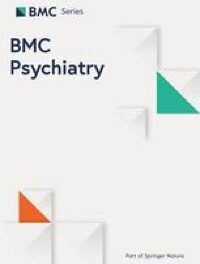
Does the perceived threat of illness change eating behaviors, and if so, how does a global pandemic affect that change? For older adults with chronic conditions, the perceived threat of the COVID-19 pandemic prompted the adoption of healthier eating behaviors among older Black Americans living in an underserved community, according to research presented at the American Academy of Physician Associates (AAPA) national conference held May 20 to 24, 2023, in Nashville, Tennessee.
To investigate the impact of the perceived threat of contracting COVID-19 on the dietary behaviors of older Black Americans living in an underserved area of Los Angeles, the researchers surveyed 118 Black adults aged 55 and older. In addition to providing demographic information and answers to questions about COVID-19 knowledge and perception, participants completed the Diet History Questionnaire III (DHQ III). The participants were divided into 2 groups: those 55 to 64 years of age with chronic health conditions and those aged 65 years and older. Researchers used DHQ III reporting to calculate Healthy Eating Index 2015 (HEI 2015) scores.
Of the 118 participants, 62.7% self-reported being in “good” or “very good” physical health. Most of the participants (86.5%) had at least a high school degree, and 69.5% were women. Nearly all of the participants (98.3%) had health insurance, and the most common chronic diseases among participants were hypertension (59.5%), chronic obstructive pulmonary disease or asthma (24.1%), diabetes (22.4%), and heart disease (9.5%).
Continue Reading
The mean HEI 2015 score was 67.41, which was a “D” rating on a scale from 58 to 100. This low ranking may be a reflection of poor diets because of barriers to online grocery delivery, food shortages, and financial constraints related to the pandemic.
The investigators found, however, that increased knowledge and the perceived threat of COVID-19 were associated with a higher HEI 2015 score independent from participant age, gender, education, living arrangements, insurance status, number of chronic diseases, food environment, and food insecurity.
Food insecurity was associated with diet quality, noted the investigators, but not the food environment, indicating that access to high-quality foods does not necessarily translate to a high HEI 2015 score or quality diet.
“During the COVID-19 pandemic, older Black Americans, especially those with chronic diseases, had suboptimal diets,” noted the investigators. “As a result, chronic diseases in this population may worsen.” Given the risks associated with COVID-19 in older adults and individuals with chronic diseases, interventions are needed to address low diet quality in this population, the study authors concluded.
References
Kibe L, Bazargan M, Schrode K, et. al. Perceived threat and knowledge of COVID-19 symptoms among older African Americans: Impact on dietary intake. Presented at: AAPA national conference; May 20-24, 2023; Nashville, TN.




